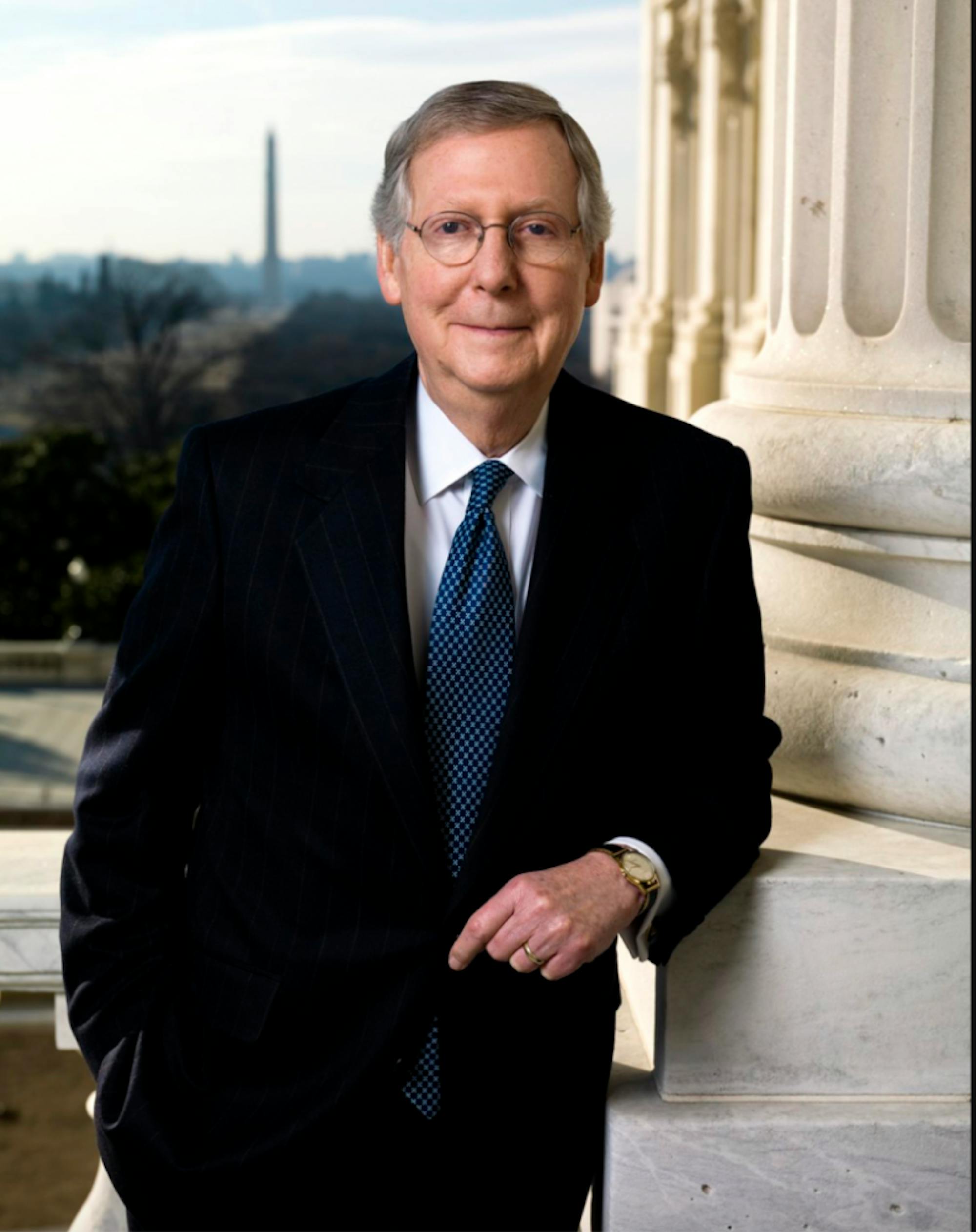Electoral politics is concerned primarily with securing power. In the moment, you say what you need to get what you want and, if it becomes advantageous, you backpedal. There is no room for principle or integrity in the realm of politics: you either seize opportunities when they present themselves or suffer a comparative disadvantage at the hands of those who oppose you. Our leaders understand this.

Sen. Mitch McConnell (R-Ky.) and Sen. Lindsay Graham (R-S.C.) have made it clear that they believe President Donald Trump should attempt to fill Supreme Court Justice Ruth Bader Ginsburg’s vacant bench seat before the 2020 presidential election despite opposing former President Barack Obama’s endeavor to fill a similar vacancy left by Justice Antonin Scalia in 2016. This is a clear instance of hypocrisy highlighted both by mainstream news sources and social media.
Less discussed is the flip-flop on the other side of the aisle. Sen. Chuck Schumer (D-N.Y.) and Obama, in spite of their support for the confirmation of Judge Merrick Garland nine months before the 2016 election, both oppose filling Ginsburg’s vacant seat prior to the election and thus have adopted the very rhetoric that was once used against them. While Obama had significantly more of his term remaining when Justice Scalia died, the spirit of the issue remains the same as it concerns the role of a president near the end of their term. This in mind, the stance taken by the Democratic establishment also constitutes hypocrisy.
All this said, is it a bad thing that our elected representatives are pathologically disingenuous?
Frankly, no. In order to best represent the interests of their constituents, it is sometimes necessary for officials to renege. For instance, if a congressman could secure funding for his district through arguing in bad faith, why wouldn’t he? His constituents would gain access to resources they need, and the congressman would net a talking point for his reelection campaign.
Take Sen. Ted Cruz’s (R-Texas) tendency to issue false statements regarding climate change. From Cruz’s point of view, regulations on energy production could injure Texas’ large fossil fuel industry and hamper his state’s economy. To prevent this, Cruz actively ignores evidence about the fossil fuel industry’s deleterious effect on climate change. While ignoring the effects of climate change could have disastrous results, Texans indicate the economy as one of their most important issues at more than twice the rate of climate change, despite the majority’s acknowledgment that climate change is occuring. As their representative, Senator Cruz has a duty to represent those desires through whatever means necessary, prioritizing Texas’ economy over the threat of climate change. If Cruz doesn’t, the people of Texas may choose to replace him with someone who will.
I, just as some of those reading may be, am largely policy-oriented with regards to my political behavior. Policy represents the substantive action government takes to enact its agenda and ultimately has the greatest effect on our day-to-day lives. It is only natural that we prioritize the material consequences of our actions over distant, lofty ideas like consistency and disclosure. .
Both major political parties have thrown aside ideological consistency in the past to advance their policy agendas. Some Democrats, for instance, have advocated for the deregulation of ballot harvesting, despite such a practice allowing private entities to influence elections through the usage of unlimited capital. Money in politics is something Democrats opposed and continue to oppose, in the case of the Citizens United ruling. On the other hand, some republicans claim mail-in voting lends itself to fraud, despite a lack of clear evidence. In both cases, parties aim to maximize voting from demographics that favor them and minimize voting from those that oppose them. Such things are done to acquire the political clout necessary to achieve the party’s policy goals.
When considering the future of Ginsburg’s now empty Supreme Court seat, the only consideration to be made is what action would produce a preferred policy outcome. Given that I more or less align with the Republican Party and its platform, it’s natural that I want Ginsburg’s seat to be filled by a Trump nominee. The idea of a staunchly conservative Supreme Court falls in line well with my policy interests, particularly as it relates to the Second Amendment and abortion. If it means advancing our shared goals, conservatives must embrace duplicity.
The same applies for Democrats. Some people are legitimately afraid that their fundamental rights could be stripped from them should a Trump nominee be confirmed. In this case, it is only logical that they fight to preserve those rights through whatever means necessary, including hypocrisy.
As political philosopher Niccolò Machiavelli put it, “Politics have no relation to morals.” To succeed in the process by which we allocate power, it is favorable to be amoral. Allowing what you can and can’t do to be constrained by vague philosophical notions only serves to deprive politicians of options available to their opposition. Such is the path to defeat.
Robert Schmad (23C) is from Kennewick, Washington.





